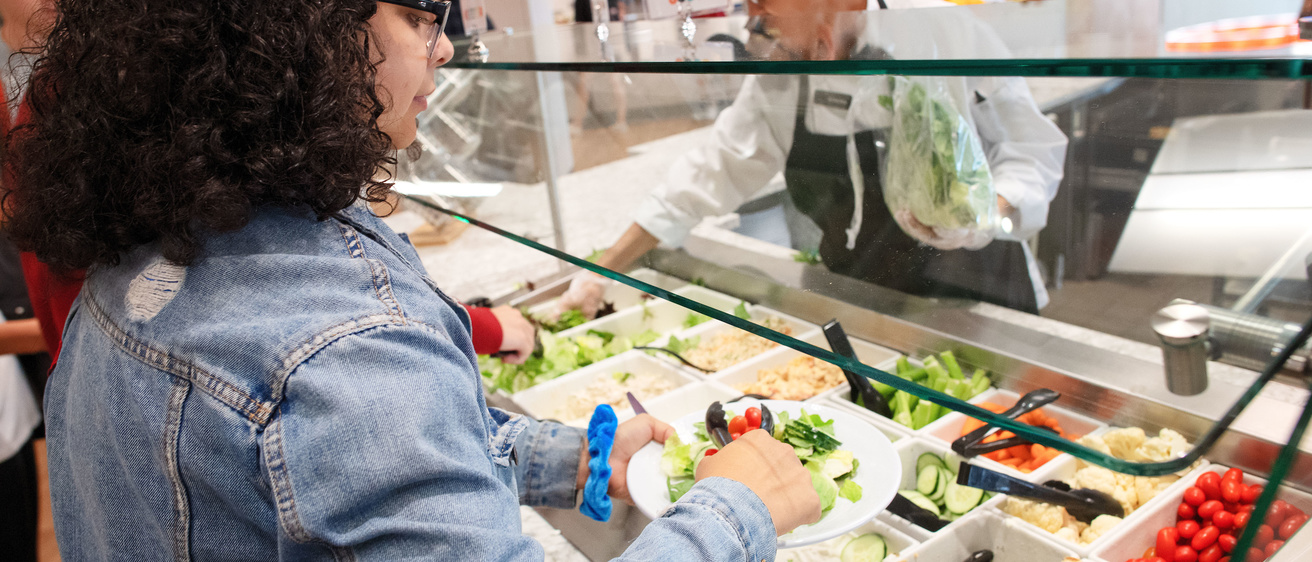The University of Iowa has been named an official Fair Trade University upon the passing of a student-led resolution that calls for a university commitment to procure and sell fair trade items.
In April, UI President Bruce Harreld signed the resolution, which pledges that University Housing and Dining will offer fair trade products in residence halls, convenience stores, and catered events sponsored by the university. Iowa becomes the first university in the Big Ten to receive a Fair Trade University designation from Fair Trade Campaigns, a grassroots organization.
Fair Trade at Iowa, a student organization formed in 2018 to work on bringing the resolution to reality, is among a number of sustainability-oriented student groups. View the full list here.
While some fair trade products were already being sold on campus, the university now will include fair trade status among the factors used when deciding which products to select, says Jill Irvin, UI Housing and Dining director.
“University Housing and Dining is committed to the principle of equity,” Irvin says. “Being able to source products designed for institutional food service through our normal supply chain presents some level of challenge. But this effort ensures that when consumers on campus see the fair trade label on products, they will know that we support companies in developing countries as they work to achieve financial success while also protecting the environment and supporting better working conditions.”
To attain a Fair Trade University designation, the dining centers, stores, and catering must each commit to offering at least two fair trade items, such as coffee and tea. The resolution calls for increased efforts across campus in the future, says Zachary Rochester, a third-year international studies major from Sioux City, Iowa, who spearheaded the effort on campus.
“The main goal of Fair Trade University campaigns is to try to get institutions to commit to more ethical purchasing,” says Rochester, who initially became interested in fair trade when volunteering for the 10,000 Villages shop in downtown Iowa City. “When we procure coffee, we can do it in a way that’s significantly more equitable for farmers in West Africa, Latin America, and southeast Asia who have been historically, critically exploited. It gives them a higher sense of stability, in a much more cooperative style.”
The initiative fits well into the university's overall sustainability goals, says Stratis Giannakouros, director of the Office of Sustainability and the Environment.
“Becoming a Fair Trade University signals to the campus community that we value ethical consumption,” he says. “The fair trade movement is predicated on the belief that, where we can, we should make choices to buy products that help support the livelihoods of farmers and other producers.”
The initiative was sparked by student enthusiasm and required significant support from university administration, shared governance, and University Housing and Dining, Giannakouros adds.
The campaign and resolution have been in the works since fall 2018, when Rochester started a student organization on campus, Fair Trade at Iowa, which then worked with UI Student Government, Faculty Senate, and the Office of the President to pass the resolution.
“I was just looking for a way to give back and to get involved in social justice initiatives, and I really liked the idea of local action with an international impact,” Rochester says. “Learning of the president’s signature and that a certificate is coming in the mail feels really good, like a silver lining during the pandemic. It’s not going to end global poverty, but these are little seeds we can sprout that hopefully make positive impacts on a larger scale.”
